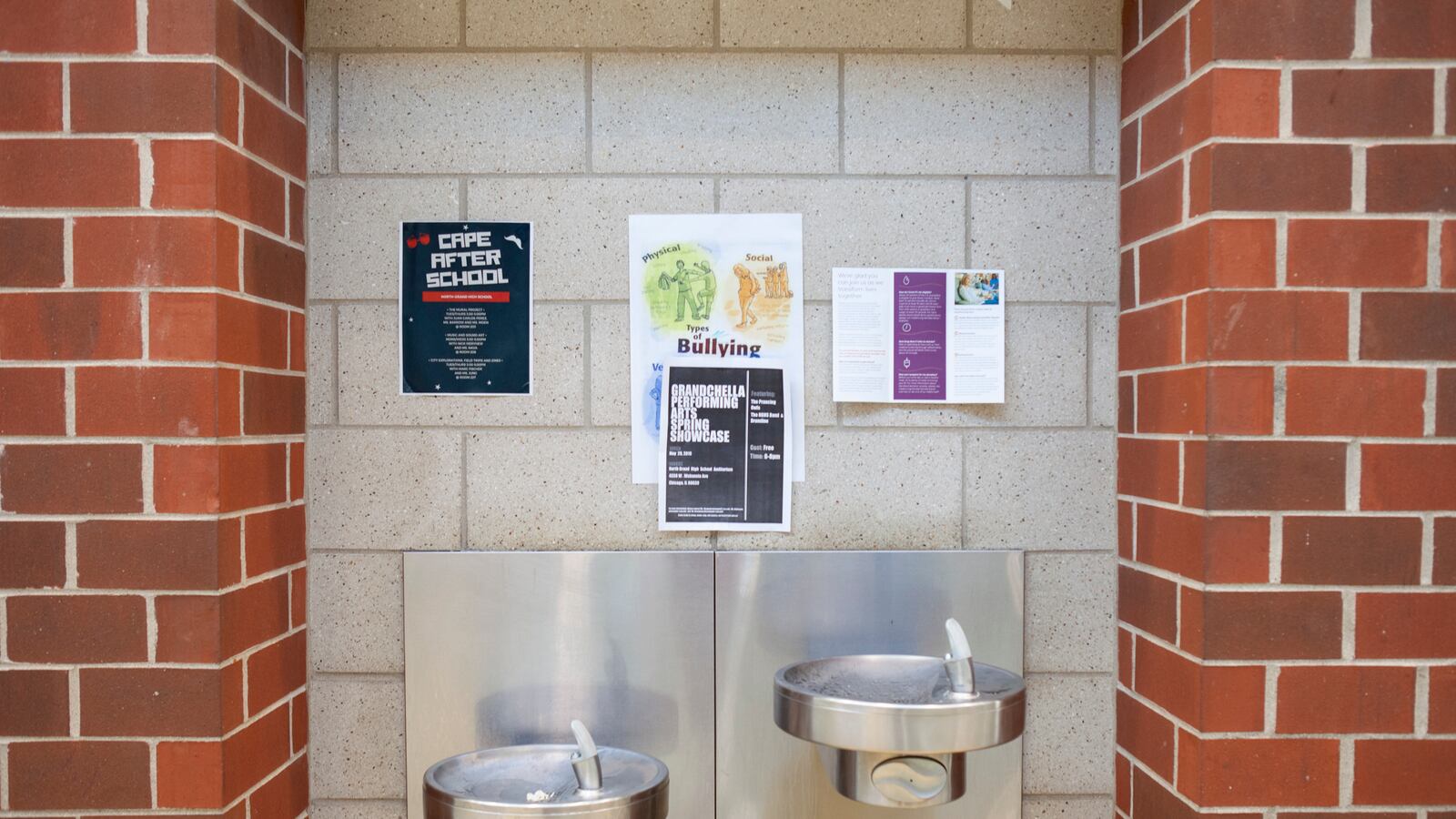Update: After three waves of test results, Shelby County Schools identified 39 schools that had high lead levels in at least one water source. The county health department is offering free lead screening and testing for affected schools.
Ten public schools in Memphis had high levels of lead in at least one water source on their campus, based on testing conducted this fall for the first time under a new state law.
Most of the 18 sources were drinking fountains, but some were kitchen sinks and coolers, according to a report submitted by Shelby County Schools to the Tennessee Department of Health last week.
One fountain near the library at Gardenview Elementary School tested more than seven times above the state’s threshold for unsafe water, which is 20 parts of lead per billion parts of water.
District leaders reported that all of the unsafe water sources have been removed. (Scroll to the bottom of this story for a full list of schools that were flagged.)
“Based on the results thus far, we do not have concerns with the water quality in the district,” spokeswoman Jerica Phillips said in a statement on Wednesday.
The findings are the first by Tennessee’s largest district under a 2018 state law requiring districts to begin checking water at least every other year in schools constructed before 1998. The legislature gave the order in response to the 2014 crisis in Flint, Michigan, where thousands of children were exposed to toxic levels of lead and school systems saw a spike in students with disabilities as a result.
For children, ingesting even low levels of lead can interfere with brain development, cause aggressiveness or inattentiveness, and impede academic achievement, according to the Environmental Protection Agency. The federal government banned using lead in new construction in 1986, but did not mandate removing lead water pipes in older buildings.
As the school year began, dozens of school systems in Tennessee reported unacceptable lead levels in water in nearly 100 schools. But the results from Shelby County Schools have been highly anticipated because of the district’s size and its large number of buildings that are more than 40 years old. School leaders have been grappling for years with how to address a backlog of about $500 million in maintenance needs and likely will close more aging buildings.
Phillips said Shelby County Schools went beyond the state’s mandate and tested all of its schools, including those built after 1998.
Here are schools with at least one unsafe water source:
- Booker T. Washington High, 1 cooler.
- Central High, 1 kitchen sink.
- Charjean Elementary, 1 kitchen sink.
- Chickasaw Middle, 4 water fountains.
- Double Tree Elementary, 2 coolers in the cafeteria.
- Gardenview Elementary, 4 water fountains.
- Havenview Middle, 1 kitchen sink.
- Sheffield High, 1 water fountain.
- Whitehaven Elementary, 2 water fountains.
- Whitehaven High, 1 cooler in the boys locker room.
One of the schools flagged, Charjean Elementary, is slated to close next year. Its students will be moved to a new building on the campus of Alcy Elementary School.
Phillips said the district has notified the families of affected students by phone. Shelby County Schools also has contacted the local health department about the findings, which officials said were not surprising.
“We have our plant managers doing a flushing of the fountains during breaks and other periods of inactivity. We’ve found this to be effective in reducing potential lead exposure,” she said.
School leaders in state-run or district-authorized charter schools are responsible for water testing in buildings owned by Shelby County Schools, Phillips added.
You can learn more about Shelby County Schools’ drinking water policy here and Tennessee’s healthy school drinking water initiative here.
This story has been updated with statements from Shelby County Schools. The headline has also been updated.

